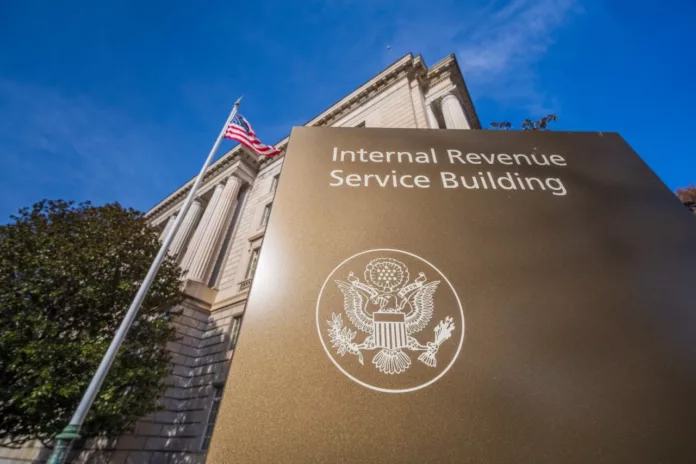
IRS Tech Modernization Fails: $15 Billion Over Budget and Reform Plans Surface
The IRS's decades-long technology modernization efforts have faced significant setbacks, with the project now running nearly 30 years late and $15 billion over budget. Initially launched in 1990 with a target completion date of 1996, contractors now estimate completion won't happen until at least 2030.

IRS building with stimulus check headline
The Department of Government Efficiency (DOGE) points to problematic federal IT contract structures as the main issue. These contracts pay for time spent rather than outcomes achieved, creating incentives for contractors to extend project timelines.
In response, the IRS has frozen $1.5 billion worth of non-essential contracts. This move aims to eliminate inefficiencies and restructure agreements to focus on performance-based compensation.
A new proposal gaining traction suggests eliminating income tax for individuals earning under $150,000 annually. Commerce Secretary Howard Lutnick supports this initiative, suggesting that reducing government waste could offset the revenue impact.
Key impacts for taxpayers:
- No changes to 2025 tax filing requirements
- Improved IRS services expected as contracts are restructured
- Potential tax elimination for sub-$150,000 earners in coming years
- Increased scrutiny of contractors rather than individual taxpayers
Department of Government Efficiency Tweet
The implications extend beyond tax filing. The IRS plays a crucial role in distributing stimulus payments, managing tax credits, and verifying federal aid eligibility. Continued technical challenges could disrupt these essential services.
These developments signal a potential shift in how Americans interact with the tax system. With contract freezes and reform proposals gaining momentum, 2025 could mark a turning point in federal tax administration.
The ongoing challenges highlight the need for modernization while raising questions about the efficiency of government contracts and the possibility of fundamental tax system reform.
